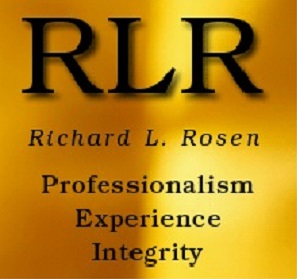
Global Law Experts
Lawyers
Countries Covered
Practice Areas
Discover award-winning Franchise lawyers worldwide on Global Law Experts. Connect with independent legal experts for your Franchise legal needs.
















No results available Reset filters?
Franchise law governs the legal relationship where a “franchisor” grants a “franchisee” the right to operate a business using its proven brand, systems, and intellectual property. This practice is a specialized hybrid of contract law, intellectual property, and competition law, designed to manage the delicate balance between brand uniformity and independent ownership. Attorneys provide the essential framework for navigating Franchise Disclosure Documents (FDD), ensuring compliance with FTC regulations (or local equivalents), and drafting robust Franchise Agreements that protect the system’s integrity.
Global Law Experts connects you with premier franchise specialists who possess the strategic depth required to expand brands across borders. These lawyers are established experts within their own fields, offering the tactical foresight needed to handle Master Franchise Agreements, manage the complexities of “area development” rights, and resolve high-stakes disputes over territory encroachment or non-compete covenants. Whether you are an emerging brand looking to “franchise-out” for the first time or an international group managing a global portfolio of outlets, they provide the strategic advocacy needed to protect your brand equity in any legal forum.
Every GLE member is independently vetted by practice area and jurisdiction.
A Franchise lawyer serves as the architect of the brand relationship. For franchisors, they build the entire legal system, drafting the Operations Manuals and Disclosure Documents that keep the business compliant with federal laws like the FTC Franchise Rule. For franchisees, they act as a shield. They review the massive contracts before you sign to spot hidden liabilities. Their goal is to ensure that the “marriage” between the brand and the local owner is legally sound and commercially viable.
The FDD is a mandatory transparency document in the US that reveals the franchisor’s history. It is essential reading because it exposes litigation history, bankruptcy filings, and hidden fees. You must review it to see “Item 19,” which details the financial performance of existing locations. A lawyer helps you decode this data. If a franchisor has a high churn rate or a history of suing their own partners, the FDD is where those red flags are buried.
Many people assume franchise agreements are non-negotiable, but that is often false. While core brand standards like logos or menus remain fixed, business terms are frequently up for discussion. A lawyer helps you negotiate critical protections, such as a larger exclusive territory or a “cure period” to fix mistakes before you lose your license. Securing a fair transfer fee or a cap on renovation costs now can save you significant capital later in the lease term.
Walking away is expensive. Most agreements contain “liquidated damages” clauses, which require you to pay the future royalties you would have paid if you stayed open. A lawyer analyzes these exit costs to see if they are enforceable. In the US, wrongful termination can lead to lawsuits for “future lost profits,” amounting to hundreds of thousands of dollars. You also likely signed a non-compete clause, which legally prevents you from opening a similar business in the same area.
Disputes here often center on transparency. Franchisees pay into a national marketing fund but often feel the money does not benefit them locally. A lawyer uses audit rights found in the contract to force the franchisor to show exactly where those dollars went. They check if the funds were used properly for advertising or improperly for general corporate expenses. If the franchisor cannot account for the spending, a lawyer can demand a refund or a reduction in future fees.
Encroachment happens when a franchisor opens a corporate store or sells another franchise too close to your location, cannibalizing your sales. Today, this also includes “digital encroachment,” where the brand sells products online directly to your local customers. A lawyer defines your territory boundaries strictly in the agreement to prevent this. If the franchisor crosses that line, your lawyer can file for breach of contract to stop the saturation of your market.
This is a major issue known as “joint employer” liability. If a franchisor exercises too much control over your staff—like setting wages or hiring specific managers—they can be sued for your labor violations. A lawyer drafts the Operations Manual to ensure a clear separation. They ensure the franchisor sets brand standards but stays out of HR decisions. This legal firewall protects the parent company from lawsuits involving wage theft or harassment at the store level.
Yes, because franchising is heavily regulated at the state level. In the US, specific “registration states” like California and New York require you to file your FDD for government review before you can sell a single unit. A lawyer manages this complex filing process. If you sell a franchise without proper registration, regulators can ban your business and force you to buy back the franchise at a loss. It is a strict liability offense, so ignorance of the law is not a defense.
A Franchise lawyer serves as the architect of the brand relationship. For franchisors, they build the entire legal system, drafting the Operations Manuals and Disclosure Documents that keep the business compliant with federal laws like the FTC Franchise Rule. For franchisees, they act as a shield. They review the massive contracts before you sign to spot hidden liabilities. Their goal is to ensure that the "marriage" between the brand and the local owner is legally sound and commercially viable.
The FDD is a mandatory transparency document in the US that reveals the franchisor's history. It is essential reading because it exposes litigation history, bankruptcy filings, and hidden fees. You must review it to see "Item 19," which details the financial performance of existing locations. A lawyer helps you decode this data. If a franchisor has a high churn rate or a history of suing their own partners, the FDD is where those red flags are buried.
Many people assume franchise agreements are non-negotiable, but that is often false. While core brand standards like logos or menus remain fixed, business terms are frequently up for discussion. A lawyer helps you negotiate critical protections, such as a larger exclusive territory or a "cure period" to fix mistakes before you lose your license. Securing a fair transfer fee or a cap on renovation costs now can save you significant capital later in the lease term.
Walking away is expensive. Most agreements contain "liquidated damages" clauses, which require you to pay the future royalties you would have paid if you stayed open. A lawyer analyzes these exit costs to see if they are enforceable. In the US, wrongful termination can lead to lawsuits for "future lost profits," amounting to hundreds of thousands of dollars. You also likely signed a non-compete clause, which legally prevents you from opening a similar business in the same area.
Disputes here often center on transparency. Franchisees pay into a national marketing fund but often feel the money does not benefit them locally. A lawyer uses audit rights found in the contract to force the franchisor to show exactly where those dollars went. They check if the funds were used properly for advertising or improperly for general corporate expenses. If the franchisor cannot account for the spending, a lawyer can demand a refund or a reduction in future fees.
Encroachment happens when a franchisor opens a corporate store or sells another franchise too close to your location, cannibalizing your sales. Today, this also includes "digital encroachment," where the brand sells products online directly to your local customers. A lawyer defines your territory boundaries strictly in the agreement to prevent this. If the franchisor crosses that line, your lawyer can file for breach of contract to stop the saturation of your market.
This is a major issue known as "joint employer" liability. If a franchisor exercises too much control over your staff—like setting wages or hiring specific managers—they can be sued for your labor violations. A lawyer drafts the Operations Manual to ensure a clear separation. They ensure the franchisor sets brand standards but stays out of HR decisions. This legal firewall protects the parent company from lawsuits involving wage theft or harassment at the store level.
Yes, because franchising is heavily regulated at the state level. In the US, specific "registration states" like California and New York require you to file your FDD for government review before you can sell a single unit. A lawyer manages this complex filing process. If you sell a franchise without proper registration, regulators can ban your business and force you to buy back the franchise at a loss. It is a strict liability offense, so ignorance of the law is not a defense.
Global Law Experts is dedicated to providing exceptional legal services to clients around the world. With a vast network of highly skilled and experienced lawyers, we are committed to delivering innovative and tailored solutions to meet the diverse needs of our clients in various jurisdictions.

Thinking of buying property in Brazil? Start with a full legal safety net.
✔️ Check title and ownership history
✔️ Verify no debts or disputes
✔️ Confirm zoning and permits.
#BrazilProperty #RealEstateInvesting #LegalDueDiligence #ForeignInvestment #PropertyLaw #GlobalRealEstate #InvestmentRisk #BrazilLaw

When your international business faces financial distress, quick action is key! 🔑 Negotiating with creditors, restructuring debt, and understanding insolvency laws can help regain stability. Global Law Experts is here to guide you through your options.
🌍Explore the details on our website.
🔗Link in bio
#GlobalLawExperts #CommercialLaw #BusinessLaw #LegalAdvice #BusinessGrowth #LegalTips #BusinessStrategy #LegalCompliance #Law #LegalKnowledge #LegalAwareness #Law101 #LegalEducation #IntellectualProperty

Thinking of buying property in Brazil? Don’t stop at the contract or key handover. Make sure the title is officially registered before calling it yours.
#BrazilRealEstate #PropertyLaw #GlobalInvestment #ForeignInvestors #LegalTips #DueDiligence #RealEstateRegistration #SecureInvestment

Getting a termination notice right now? Know your rights. Valid reason, fair process, proper notice they matter. Don’t let a bad dismissal walk away without accountability.
#EmploymentLaw #WorkerRights #Termination #LaborLaw #FairDismissal #WorkplaceJustice #LegalAwareness #GlobalWorkforce

Running a business is hard enough — lawsuits shouldn’t make it harder. 🚫 Protect your business with the right legal strategies and expert tools from Global Law Experts. Let’s secure your future together! 💼
🌍Explore the details on our website.
➡️www.globallawexperts.com
#GlobalLawExperts #CommercialLaw #BusinessLaw #LegalAdvice #BusinessGrowth #LegalTips #BusinessStrategy #LegalCompliance #Law #LegalKnowledge #LegalAwareness #Law101 #LegalEducation #IntellectualProperty #Infringed #Ecommerce #LegalBranding
Global Law Experts is dedicated to providing exceptional legal services to clients around the world. With a vast network of highly skilled and experienced lawyers, we are committed to delivering innovative and tailored solutions to meet the diverse needs of our clients in various jurisdictions.

Thinking of buying property in Brazil? Start with a full legal safety net.
✔️ Check title and ownership history
✔️ Verify no debts or disputes
✔️ Confirm zoning and permits.
#BrazilProperty #RealEstateInvesting #LegalDueDiligence #ForeignInvestment #PropertyLaw #GlobalRealEstate #InvestmentRisk #BrazilLaw

When your international business faces financial distress, quick action is key! 🔑 Negotiating with creditors, restructuring debt, and understanding insolvency laws can help regain stability. Global Law Experts is here to guide you through your options.
🌍Explore the details on our website.
🔗Link in bio
#GlobalLawExperts #CommercialLaw #BusinessLaw #LegalAdvice #BusinessGrowth #LegalTips #BusinessStrategy #LegalCompliance #Law #LegalKnowledge #LegalAwareness #Law101 #LegalEducation #IntellectualProperty

Thinking of buying property in Brazil? Don’t stop at the contract or key handover. Make sure the title is officially registered before calling it yours.
#BrazilRealEstate #PropertyLaw #GlobalInvestment #ForeignInvestors #LegalTips #DueDiligence #RealEstateRegistration #SecureInvestment

Getting a termination notice right now? Know your rights. Valid reason, fair process, proper notice they matter. Don’t let a bad dismissal walk away without accountability.
#EmploymentLaw #WorkerRights #Termination #LaborLaw #FairDismissal #WorkplaceJustice #LegalAwareness #GlobalWorkforce

Running a business is hard enough — lawsuits shouldn’t make it harder. 🚫 Protect your business with the right legal strategies and expert tools from Global Law Experts. Let’s secure your future together! 💼
🌍Explore the details on our website.
➡️www.globallawexperts.com
#GlobalLawExperts #CommercialLaw #BusinessLaw #LegalAdvice #BusinessGrowth #LegalTips #BusinessStrategy #LegalCompliance #Law #LegalKnowledge #LegalAwareness #Law101 #LegalEducation #IntellectualProperty #Infringed #Ecommerce #LegalBranding

Send welcome message